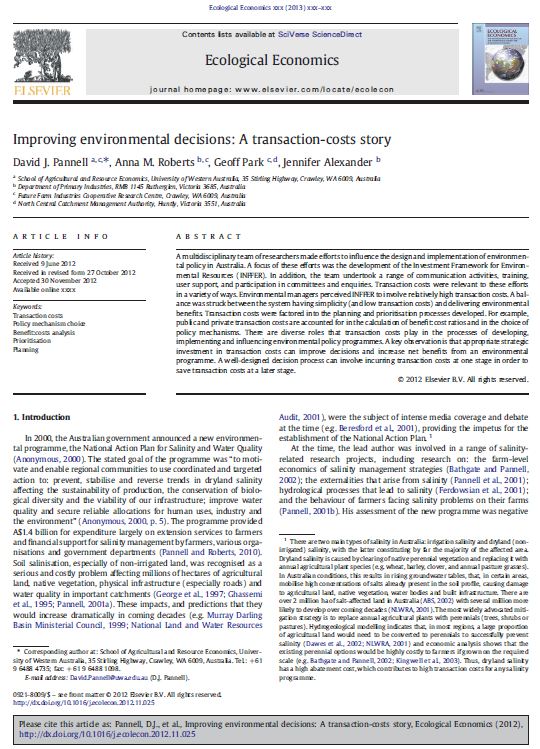Transaction cost article
This article describes how considerations of transaction costs have influenced the design of INFFER.
Pannell, D.J., Roberts, A.M., Park, G. and Alexander, J. (2013). Improving environmental decisions: a transaction-costs story, Ecological Economics 88, 244-252.
Abstract
A multidisciplinary team of researchers made efforts to influence the design and implementation of environmental policy in Australia. A focus of these efforts was the development of the Investment Framework for Environmental Resources (INFFER). In addition, the team undertook a range of communication activities, training, user support, and participation in committees and enquiries. Transaction costs were relevant to these efforts in a variety of ways. Environmental managers perceived INFFER to involve relatively high transaction costs. A balance was struck between the system having simplicity (and low transaction costs) and delivering environmental benefits. Transaction costs were factored into the planning and prioritisation processes developed. For example, public and private transaction costs are accounted for in the calculation of Benefit: Cost Ratios and in the choice of policy mechanisms. There are diverse roles that transaction costs play in the processes of developing, implementing and influencing environmental policy programs. A key observation is that appropriate strategic investment in transaction costs can improve decisions and increase net benefits from an environmental program. A well-designed decision process can involve incurring transaction costs at one stage in order to save transaction costs at a later stage.
Link to the paper’s page at the journal web site
Pre-publication version of the full paper (679K)
For a copy of the article, email us.


